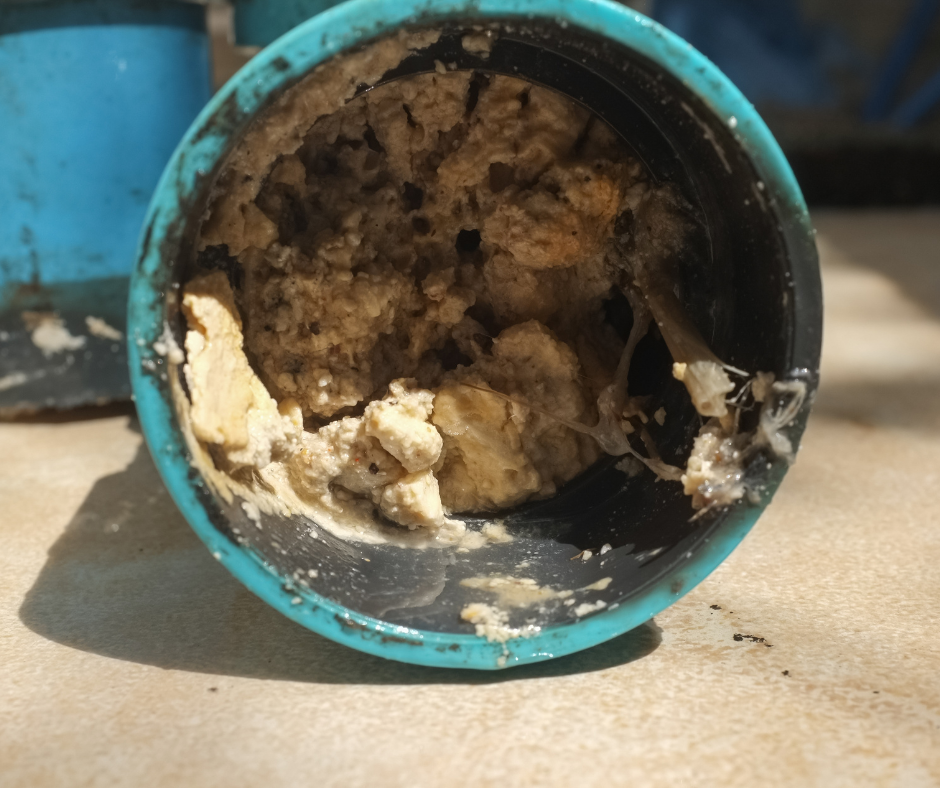Fats, oils, and greases (FOG) are the leading cause of slow drains, backups, and overflows in the sanitary sewer. Backups and overflows cause serious health hazards and can result in costly property damage and expensive, unpleasant cleanups.
Make sure to keep FOG out of your drains. Cooking waste from meat, oils, lard, butter, sauces, dairy products or other foods containing these materials, as well as water that has been used to wash cooking equipment, contain waste FOG. When waste FOG is poured down the sink, grease sticks to the inside of sewer pipes where it cools and solidifies, congealing and building up over time.

Keep FOG out of your pipes
As these fatbergs begin to clog the sewer lines, layer upon layer of other non-disposable items (like wet wipes) that are in the sewer pipes collect with the fat, resulting in sewer blockages and overflows that can cause health hazards by harboring dangerous bacteria, including Listeria and E.coli. Fatbergs may also cause expensive property damage and threaten the environment.
How can you help?
Never pour grease or oil down any drain, including your toilet. Instead, pour grease into a can or jar that can be thrown away when cooled. Here are a few more tips:
- Use disposable towels to wipe fats, oils and grease from pots, pans and dishware prior to dishwashing.
- Scrape food scraps from pans and plates into the trash for disposal.
- Put screens/strainers in sink drains to catch food scraps and other solids and empty them into the trash.
- Recycle used or unused cooking oil, like turkey fryer oil, at the Olathe Household Hazardous Waste Facility, located at 1420 S. Robinson Drive, Olathe, Kansas. The Olathe facility is available to all Johnson County residents or you can go to the Johnson County Household Hazardous Waste Facility, located at 11231 Mastin Street, Overland Park, Kansas 66210.
Home garbage disposals do not keep FOG out of pipes and neither do hot water or soaps that claim to dissolve grease.
What’s the big deal?
FOG-created fatbergs can result in raw sewage overflowing into your or your neighbor’s home, and an expensive and unpleasant cleanup that must be paid for by the home or business owner. FOG also increases operation and maintenance costs for Edgerton’s wastewater system, which can ultimately lead to higher sewer bills for customers.








